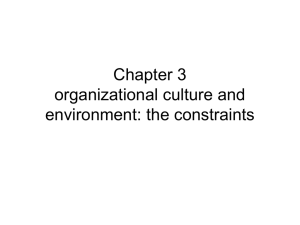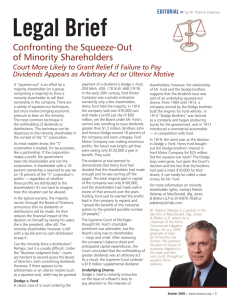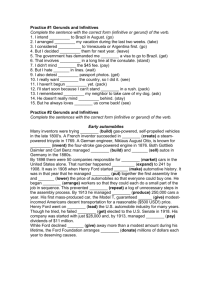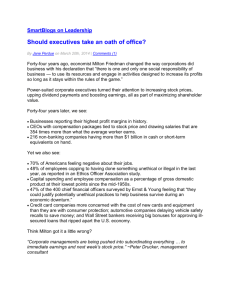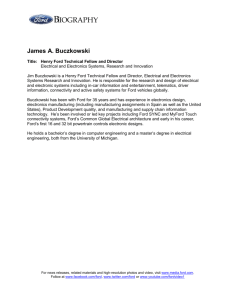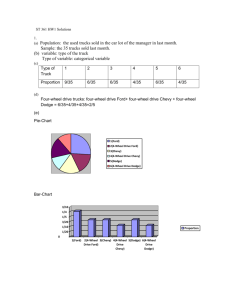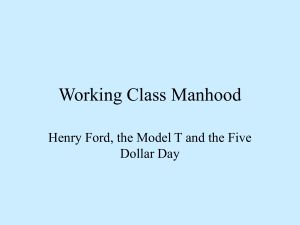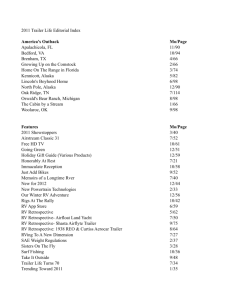1111530602_331428
advertisement
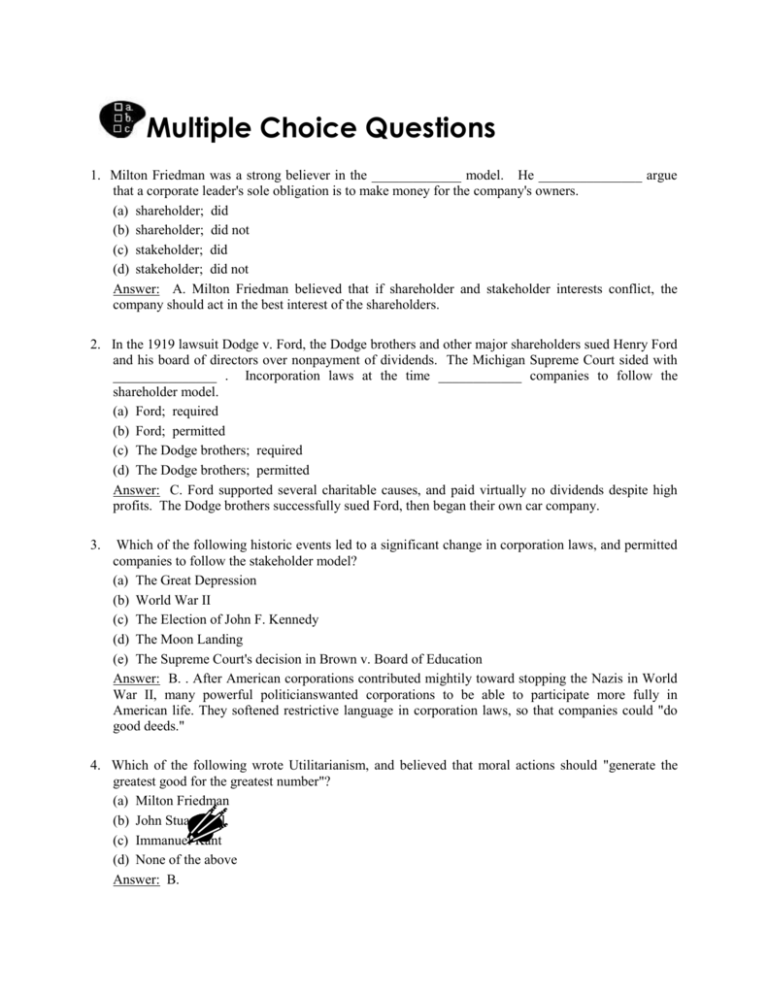
Multiple Choice Questions 1. Milton Friedman was a strong believer in the _____________ model. He _______________ argue that a corporate leader's sole obligation is to make money for the company's owners. (a) shareholder; did (b) shareholder; did not (c) stakeholder; did (d) stakeholder; did not Answer: A. Milton Friedman believed that if shareholder and stakeholder interests conflict, the company should act in the best interest of the shareholders. 2. In the 1919 lawsuit Dodge v. Ford, the Dodge brothers and other major shareholders sued Henry Ford and his board of directors over nonpayment of dividends. The Michigan Supreme Court sided with _______________ . Incorporation laws at the time ____________ companies to follow the shareholder model. (a) Ford; required (b) Ford; permitted (c) The Dodge brothers; required (d) The Dodge brothers; permitted Answer: C. Ford supported several charitable causes, and paid virtually no dividends despite high profits. The Dodge brothers successfully sued Ford, then began their own car company. 3. Which of the following historic events led to a significant change in corporation laws, and permitted companies to follow the stakeholder model? (a) The Great Depression (b) World War II (c) The Election of John F. Kennedy (d) The Moon Landing (e) The Supreme Court's decision in Brown v. Board of Education Answer: B. . After American corporations contributed mightily toward stopping the Nazis in World War II, many powerful politicianswanted corporations to be able to participate more fully in American life. They softened restrictive language in corporation laws, so that companies could "do good deeds." 4. Which of the following wrote Utilitarianism, and believed that moral actions should "generate the greatest good for the greatest number"? (a) Milton Friedman (b) John Stuart Mill (c) Immanuel Kant (d) None of the above Answer: B. 5. Which of the following believed that the dignity of human beings must be respected, and that the most ethical decisions are made out of a sense of duty or obligation? (a) Milton Friedman (b) John Stuart Mill (c) Immanuel Kant (d) None of the above Answer: C.

